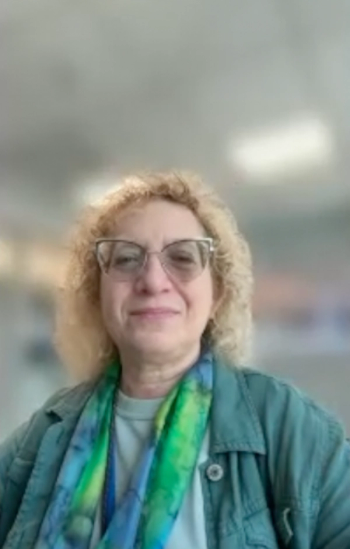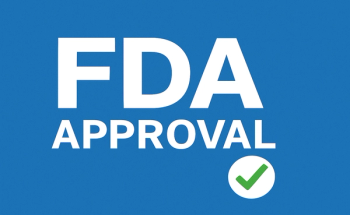
Study Summary: Cabozantinib for Advanced and Progressing Hepatocellular Carcinoma
Background
Outcomes, including survival, are poor for patients with liver cancer, and there is an unmet need for additional treatment options. Vascular endothelial growth factor (VEGF) and the receptor kinases MET and AXL are thought to be involved in the pathogenesis of liver cancer. Cabozantinib is an inhibitor of tyrosine kinases (including VEGF receptors 1, 2, and 3, MET, and AXL) that inhibits tumor growth in murine models of hepatocellular carcinoma. In a phase 2, randomized trial, cabozantinib demonstrated efficacy in patients with advanced hepatocellular carcinoma, regardless of previous sorafenib treatment; median overall survival (OS) was 11.5 months and median progression-free survival (PFS) was 5.2 months with cabozantinib. Based on these positive results, a phase 3 trial was initiated to evaluate the use of cabozantinib in patients with advanced hepatocellular carcinoma who previously received treatment with sorafenib.1
Study Design
This phase 3, double-blind, placebo-controlled, randomized study evaluated the use of cabozantinib in patients with previously treated advanced hepatocellular carcinoma. Eligible patients had received prior treatment with sorafenib, and experienced disease progression after at least 1 systemic treatment (up to a maximum of 2) for hepatocellular carcinoma. Patients were randomized 2:1 to cabozantinib (60 mg orally once daily) or placebo. Treatment interruptions and dose reductions (to 40 mg once daily and then 20 mg once daily) were allowed. Treatment was continued as long as patients experienced clinical benefit and did not have unacceptable toxicities.1
The primary end point was OS (time from randomization to death from any cause). Secondary end points included PFS (time from randomization to radiographic progression or death from any cause, whichever occurred first) and objective response rate (ORR; complete responses plus partial responses). Safety was evaluated continuously.1
ResultsBaseline Characteristics
Baseline demographics were generally well balanced between the 2 groups. All patients previously received sorafenib and 27% of patients had received 2 previous systemic treatments for hepatocellular carcinoma.1
Efficacy
At the data cutoff for the second interim analysis, 707 patients (cabozantinib, n = 470; placebo, n = 237) had undergone randomization; these patients comprised the intention-to-treat efficacy population. Sixteen percent of cabozantinib-treated patients and 11% of placebo-treated patients were still receiving study medication at data cutoff.1
OS was significantly improved with cabozantinib compared with placebo (P = .005). Median OS was 10.2 months with cabozantinib and 8.0 months with placebo. These OS results were consistent with the first interim analysis, which included 321 patient deaths, representing 52% of the 621 deaths planned for the prespecified final analysis.1
PFS and ORR were also significantly improved with cabozantinib compared with placebo (P <.001 and P = .009, respectively). Median PFS was 5.2 months with cabozantinib and 1.9 months with placebo. The ORR was 4% with cabozantinib and less than 1% with placebo. There were 18 partial response with cabozantinib among 470 patients and 1 partial response with placebo among 237 patients. Disease control (partial response or stable disease) was achieved in 64% of cabozantinib-treated patients and 33% of placebo-treated patients.1
Safety
The median duration of treatment was 3.8 months in the cabozantinib group and 2.0 months in the placebo group. Adverse events (AEs) were reported in 99% of cabozantinib-treated patients (with 68% being grade 3/4 events) and in 92% of placebo-treated patients (with 36% being grade 3/4 events). The most commonly reported high-grade AEs were palmar-plantar erythrodysesthesia (cabozantinib, 17%; placebo, none), hypertension (cabozantinib, 16%; placebo, 2%), increased aspartate aminotransferase levels (cabozantinib, 12%; placebo, 7%), fatigue (cabozantinib, 10%; placebo, 4%), and diarrhea (cabozantinib, 10%; placebo, 2%).1
Sixty-two percent of cabozantinib-treated patients and 13% of placebo-treated patients required dose reductions. The most commonly reported AEs leading to dose reductions with cabozantinib included palmar-plantar erythrodysesthesia (22%), diarrhea (10%), fatigue (7%), hypertension (7%), and increased aspartate aminotransferase level (6%).1
Treatment discontinuations due to AEs were reported in 16% of cabozantinib-treated patients and 3% of placebo-treated patients. The most common reasons for treatment discontinuations in patients randomized to cabozantinib (with a frequency >1%) included palmar-plantar erythrodysesthesia, fatigue, decreased appetite, diarrhea, and nausea.1
Grade 5 events, which were reported in 12% of patients in each group, were most commonly related to disease progression. Grade 5 events considered related to treatment were reported in 6 cabozantinib-treated patients (hepatic failure, n = 1; bronchoesophageal fistula, n = 1; portal vein thrombosis, n = 1; upper gastrointestinal hemorrhage, n = 1; pulmonary embolism, n = 1; hepatorenal syndrome, n = 1) and in 1 placebo-treated patient (hepatic failure) .1
Conclusion
Treatment with cabozantinib improved survival in patients having hepatocellular carcinoma who were previously treated with sorafenib; however, high-grade AEs were twice as common with cabozantinib compared with placebo.1
Reference
1. Abou-Alfa GK, Meyer T, Cheng AL, et al. Cabozantinib in patients with advanced and progressing hepatocellular carcinoma. N Engl J Med. 2018;379(1):54-63. doi: 10.1056/NEJMoa1717002.
Newsletter
Stay ahead of policy, cost, and value—subscribe to AJMC for expert insights at the intersection of clinical care and health economics.








